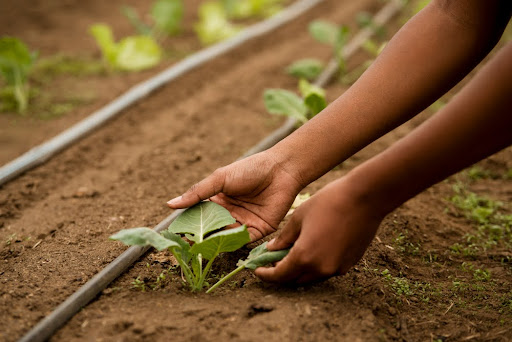India’s agriculture sector has long been the backbone of its economy, employing millions of farmers and contributing significantly to the nation’s food security. However, as climate change intensifies and the global population grows, traditional farming practices are being challenged. In response, the future of farming in India is poised for a significant transformation, powered by sustainable agriculture solutions and innovative technologies that will redefine how food is produced, distributed, and consumed.
Embracing Technological Innovation in Farming
The future of Indian agriculture is modern technologies that enable productivity while minimizing environmental footprint. Technology will play the most crucial role in agriculture as it grows with resource efficiency, be it with water, fertilizers, or the land. Already, in the form of IoT, AI, satellite imagery, and data analytics, agricultural landscapes are changing.
Among the most interesting innovations in this regard is the application of satellite technology in agriculture. Satellites monitor crop health, observe weather patterns, and even offer farmers insightful information about soil quality. This data can be used to make more informed decisions, optimize irrigation, and reduce the reliance on harmful chemicals. For instance, satellite imagery can provide real-time data on crop health, enabling farmers to identify issues early and take corrective actions swiftly.
Another transformative technology in Indian farming is the rise of drones. Drones equipped with sensors and cameras allow farmers to monitor crops, assess soil health, and apply fertilizers and pesticides more precisely. By reducing the overuse of chemicals, drones help minimize environmental damage and enhance the sustainability of farming practices.
Sustainable Agriculture Solutions: The Key to Long-Term Growth
As India faces the dual challenges of ensuring food security and minimizing environmental degradation, sustainable agriculture solutions have become imperative. The country’s agricultural sector is heavily dependent on monsoon rains, and with changing climate patterns, farmers are increasingly vulnerable to unpredictable weather conditions, floods, and droughts.
To address these challenges, India must adopt farming practices that are not only economically viable but also environmentally responsible. Techniques such as crop rotation, agroforestry, and the use of drought-tolerant crops are emerging. These techniques enhance soil health, reduce water loss, and decrease the application of chemicals, hence more resilient and sustainable farming systems.
Furthermore, the use of sustainable agriculture solutions can also improve farmers’ economic security. The dependency on expensive fertilizers and pesticides is reduced, and thus, the operational costs of farmers are decreased, which is particularly important for smallholder farmers who often face financial instability. The focus on sustainable practices also opens up new opportunities in the organic farming sector, which is experiencing a steady rise in demand.
Role of Data and AI in Shaping the Future of Indian Farming
Incorporating data analytics and AI in farming practices is the next important aspect of the future of agriculture in India. AI will help process enormous amounts of data, including soil conditions, crop health, and weather forecasts, to make it actionable for farmers. All this will optimize planting schedules, pest management, yields, and sustainability.
Precision farming is an important representation of how AI and analytics are changing agriculture. For example, using sensors and IoT technologies, farmers can monitor crop and soil conditions at various times, enabling the farmer to apply fertilizers, pesticides, and water with absolute precision. In that process, the yield on cropping increases, and sustainability for environmentally friendly agriculture solutions arises since wastes are reduced.
Additionally, AI can predict market trends and help farmers make informed decisions about crop selection and pricing, thus improving profitability. By using advanced algorithms, farmers can better plan for market demands, ensuring that they grow crops that are both in demand and profitable.
The Role of Government and Policy in Shaping the Future
For technology to thrive in India’s agricultural sector, supportive government policies and investments in infrastructure are essential. The Indian government has already initiated several programs aimed at promoting the adoption of technology in farming, such as the Digital India initiative and the Pradhan Mantri Krishi Sinchayee Yojana (PMKSY). These programs aim to modernize irrigation systems, promote water conservation, and encourage the use of technology to enhance farm productivity.
However, the future of farming in India will also depend on better access to markets and the provision of advisory services. Digital platforms that connect farmers with buyers, provide them with market insights, and offer expert advice on farming techniques will play a crucial role in empowering farmers and driving the adoption of sustainable practices.
Conclusion
The future of farming in India looks promising, with sustainable agriculture solutions and technology driving the transformation. Innovations in satellite technology, drones, AI, and data analytics are empowering farmers to make smarter decisions that enhance productivity and minimize environmental impact. These advancements are not just about increasing crop yields; they are about building a more resilient, sustainable, and profitable agricultural system.
At ASQI, we are dedicated to supporting this transformation by providing sustainable agriculture solutions through technology and innovation. Our platform enhances market access, provides expert advisory services, and ensures reliable verification of sustainable practices. Together, we can help shape the future of farming in India.







